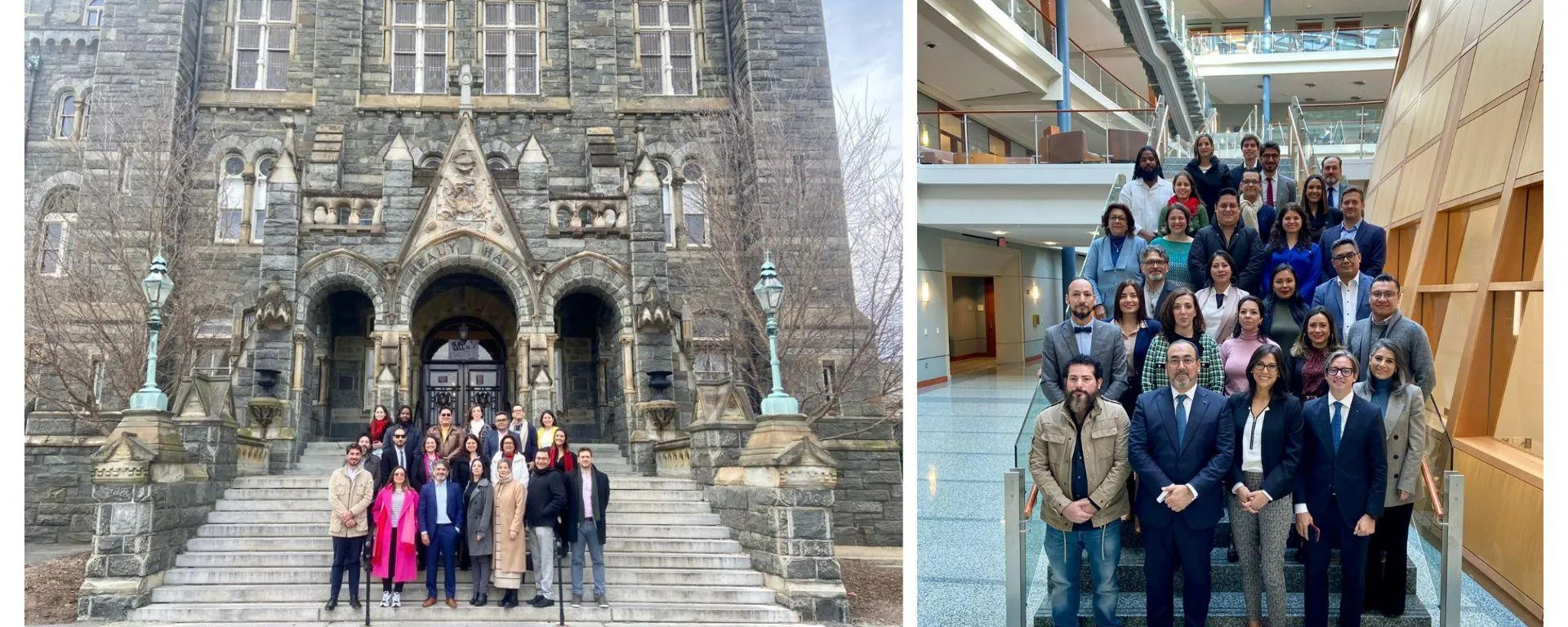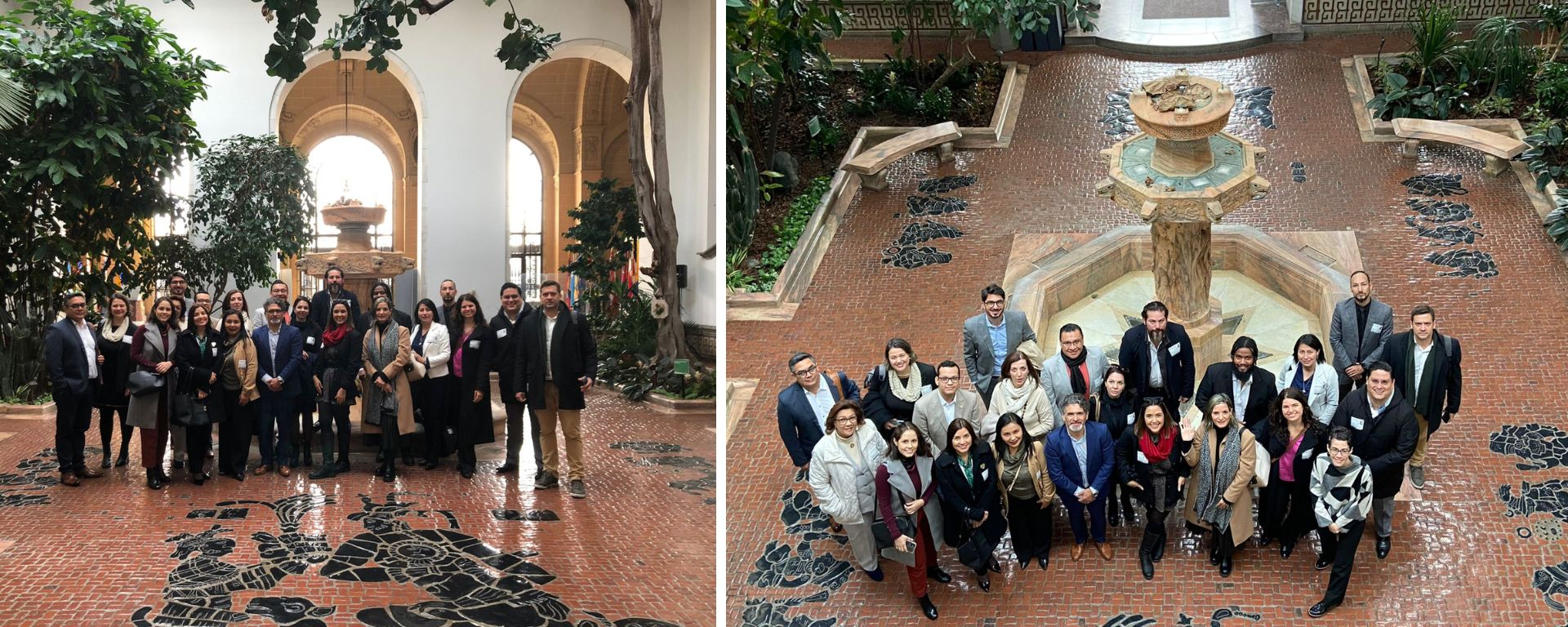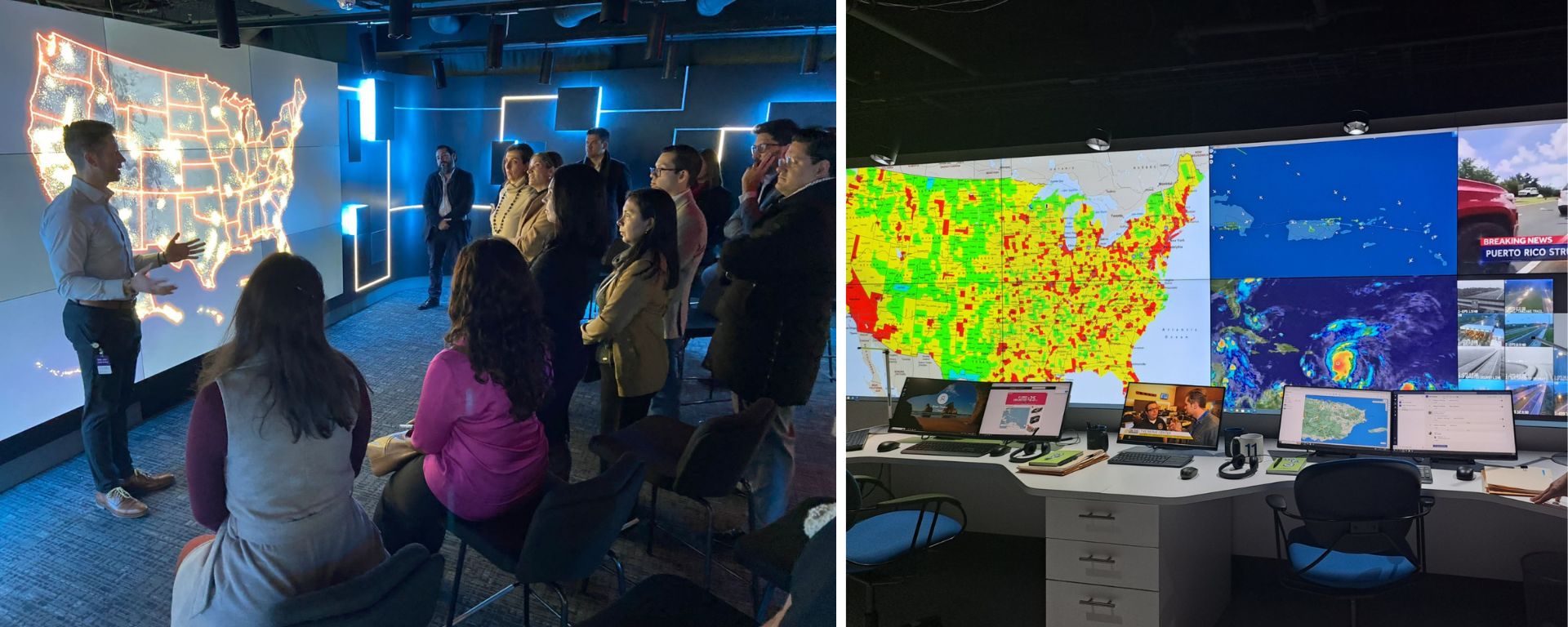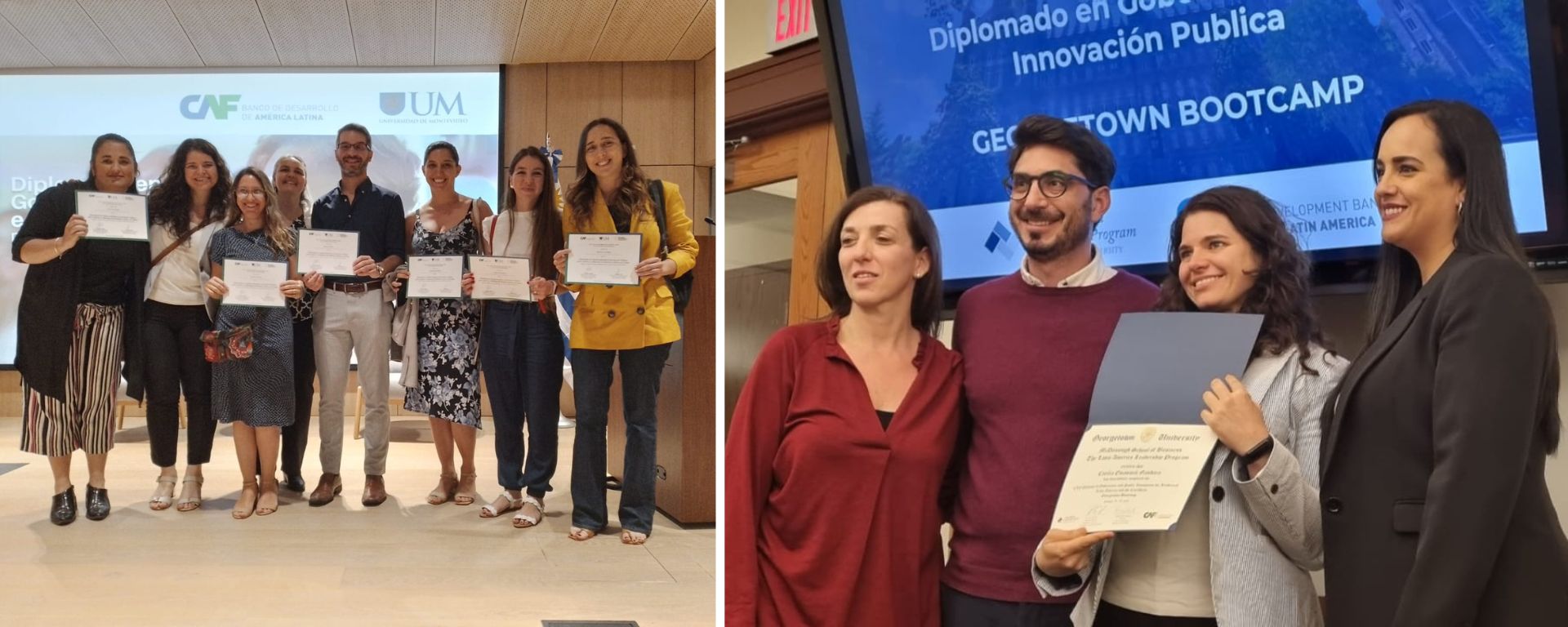Diploma in Governance CAF-UM student represented Uruguay at Georgetown University

More than 80 people enrolled to attend the 2022 edition of the Diploma in Governance and Public Innovation, organized by the Development Bank in Latin America (CAF), together with the Universidad de Montevideo. This program was also taught at seventeen universities in Latin America and the Caribbean. The course had a hybrid modality, meaning that, throughout the year, participants received online and face-to-face training and laboratory instruction on innovation projects. Those who achieved the best results on the evaluations could participate in a face-to-face incubation instance in the United States on an intensive program held at Georgetown University (Washington) from February 7 to 9. Representing Uruguay went the student Cecilia Emanueli, with the project “Planeta,” chosen as the best in the country.
Engineer Cecilia Emanueli -together with her team made up of Carolina Da Silva, Martina Lejtreger, Gabriela Mengod, Matías Sardiña, Camila Sosa Berche, Florencia Ualde, and Laura Zunino- sought a solution to the global problem of loss and waste of food through the creation of the platform “Planeta.”
About the Project
In Uruguay, food waste is at least a million tons a year, and 15 % of the population has food insecurity. Through the National Traceable Food Surpluses Platform (PLANETA), the students suggest three steps to solve the problem:
1- Merchants and producers would publish the surpluses on the platform, indicating the zone in which they are found.
2- Public organizations that work with people with food insecurity would request food.
3- Surpluses would be transferred by the beneficiaries or assistant initiatives to gather food.
In this way, the wastage of food in our country can be quantified and reduced. Also, food insecurity can decrease by bringing a plate of food to those who need it; Greenhouse-effect gasses can be minimized; businesses and producers who collaborate will be distinguished with an environmental commitment stamp and given potential fiscal benefits; and georeferenced information can be generated, allowing the optimization of recollection routes.
This Project was declared of public interest by the Environment Ministry, the National Food Institute, the Social Development Ministry, and the Intendencia de Montevideo due to contributing to achieving country objectives linked to SDG N° 2 and 12. Many organizations participated: from businesses to civil society organizations, existent initiatives, and public organisms. In their presentation, students suggested that, as it is a fundamental human right, Planeta could escalate to Latin America and the Caribbean: “The objective of the project is the search for a green future leaving no one behind.”
Georgetown experience
The intensive preparation program consisted in a 3-day training in Washington, in which representatives of 16 countries participated. Students could present their projects to the president of CAF, Sergio Díaz-Granados, and the corporative vice-president of Strategic Programming, Cristian Asinelli. They worked with the “Design Thinking” methodology, which allowed them to exchange ideas, share experiences, and improve presentations.
In addition, they visited institutions involved in innovation and public policies, like the OEA, Microsoft´s innovation centre, the Atlantic Council and The Dialogue; they talked about integration and alliances, used generative Artificial Intelligence, and met the Digital Transformation Showcase of Microsoft. Lastly, they participated in master conferences at Georgetown University about globalization, competitivity, governance, and leadership, based on strengths and storytelling.
Days in Washington were an enriching experience, academic, cultural, and personal-wise. “It helped me in creating bonds, learning how to upgrade our Project and strengthen capacities, through first-level classes, aiming to improve our region”, Emanueli.



